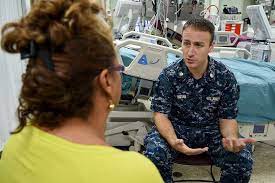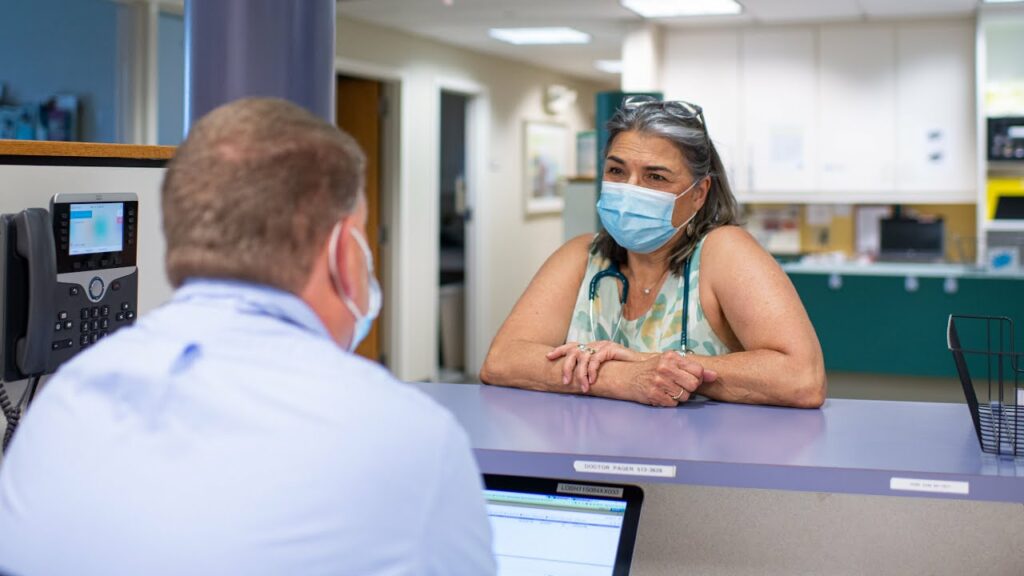Emergency psychiatrists play a critical role in providing specialized mental health care to patients in acute crises. They work in emergency rooms, psychiatric hospitals, and crisis centers to provide rapid assessments, stabilization, and treatment to patients in need. In this blog post, we will explore the vital role of emergency psychiatrists in mental health care and the essential skills and how to find a good now quickly.
Contents
What Is An Emergency Psychiatrist?
An emergency psychiatrist is a medical doctor who specializes in the assessment, diagnosis, and treatment of individuals experiencing acute mental health crises. They work in emergency departments, crisis centers, and psychiatric hospitals to provide immediate care to patients who are experiencing severe psychiatric symptoms or are at risk of harming themselves or others. Emergency psychiatrists are trained to evaluate and manage a range of psychiatric emergencies, including suicidal ideation, severe depression, acute psychosis, and substance abuse-related crises.
How Does An Emergency Psychiatrist Help?

Emergency psychiatrists help in several ways, including:
- Assessment: Emergency psychiatrists are trained to quickly assess a patient’s mental health and determine the nature and severity of their symptoms. This allows them to make an accurate diagnosis and develop a treatment plan.
- Stabilization: In many cases, patients in a psychiatric emergency are in crisis and require immediate stabilization. Emergency psychiatrists work to calm the patient and manage their symptoms to prevent harm to themselves or others.
- Treatment: Emergency psychiatrists provide treatment options to their patients, which may include medication, therapy, or other interventions depending on the individual’s needs.
- Referral: After stabilizing a patient, an emergency psychiatrist may refer them to a mental health professional for ongoing care. They may also provide resources and referrals for support services in the community.
- Coordination: Emergency psychiatrists work closely with other healthcare professionals, such as nurses, social workers, and emergency department staff, to provide the best possible care for their patients. They may also collaborate with law enforcement or other agencies to ensure patient safety.
Overall, emergency psychiatrists play a critical role in providing specialized and timely care to individuals in acute mental health crises. Their expertise and skill can help prevent harm and improve outcomes for those in need.
Treatment Approaches Of A Psychiatrist For Emergency
Emergency psychiatrists use a variety of treatment approaches depending on the individual’s needs and the nature of their psychiatric emergency. Some common treatment approaches used by emergency psychiatrists include:
- Medication: Emergency psychiatrists may prescribe medications to help manage symptoms such as anxiety, depression, or psychosis. In some cases, medication may be necessary to stabilize the patient and prevent harm to themselves or others.
- Psychotherapy: Emergency psychiatrists may provide brief therapy sessions to help the patient manage their symptoms and develop coping strategies. They may also refer the patient to a mental health professional for ongoing therapy.
- Behavioral interventions: Emergency psychiatrists may use behavioral interventions to manage symptoms such as agitation or aggression. This may involve techniques such as de-escalation, distraction, or redirection.
- Crisis intervention: Emergency psychiatrists are trained in crisis intervention techniques, which are designed to help stabilize patients in acute distress. This may involve providing support, reassurance, and guidance to help the patient manage their symptoms.
- Collaborative care: Emergency psychiatrists work closely with other healthcare professionals, including nurses, social workers, and mental health professionals, to ensure the patient receives comprehensive care. They may also collaborate with family members or caregivers to provide ongoing support and treatment.
Overall, emergency psychiatrists use a patient-centered approach to treatment, which means that they tailor their interventions to the individual’s unique needs and circumstances. Their goal is to provide timely and effective care to stabilize the patient and prevent further harm.
What To Look For In A Right Emergency Psychiatrist?

Choosing the right emergency psychiatrist is an important decision, and there are several factors to consider when making your selection. Here are some key things to look for in a qualified and effective emergency psychiatrist:
- Experience: Look for an emergency psychiatrist who has extensive experience in the field of emergency psychiatry. This includes experience working with patients in crisis and managing a range of psychiatric emergencies.
- Training and qualifications: Ensure that the emergency psychiatrist has the necessary training and qualifications to practice in your area. This may include board certification in psychiatry or emergency medicine.
- Compassion and empathy: It is important to choose an emergency psychiatrist who has a compassionate and empathetic approach to care. Look for a provider who takes the time to listen to your concerns and treats you with respect and understanding.
- Availability: Emergencies can happen at any time, so it is important to choose an emergency psychiatrist who is available when you need them. Look for a provider who offers flexible scheduling and emergency services.
- Collaborative approach: Look for an emergency psychiatrist who works collaboratively with other healthcare professionals, such as nurses, social workers, and mental health providers. This ensures that you receive comprehensive and coordinated care.
- Positive reviews and referrals: Look for an emergency psychiatrist who has positive reviews from other patients and healthcare professionals. Ask for referrals from your primary care physician or mental health provider.
Choosing the right emergency psychiatrist is an important decision, and it is essential to find a provider who is experienced, qualified, and compassionate. By considering these factors, you can find an emergency psychiatrist who can provide the specialized care you need during a mental health crisis.
Conclusion
In conclusion, emergency psychiatrists play a critical role in the mental health care system by providing specialized care to individuals experiencing acute psychiatric crises. They use a variety of treatment approaches, including medication, psychotherapy, behavioral interventions, crisis intervention, and collaborative care, to manage symptoms, stabilize the patient, and prevent harm. By providing prompt and specialized care, emergency psychiatrists can help improve outcomes for patients in need and support their long-term recovery.
For more information, please contact MantraCare. A psychiatrist is a medical doctor who specializes in the diagnosis, treatment, and prevention of mental illnesses and emotional disorders. If you have any queries regarding Online Counseling experienced therapists at MantraCare can help: Book a trial therapy session


